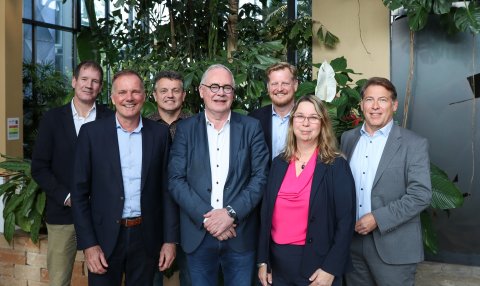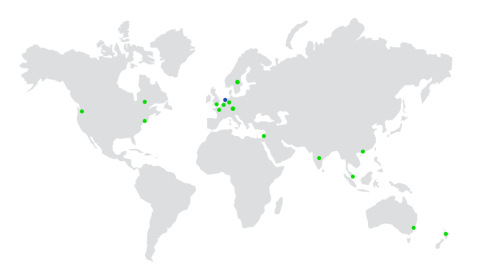
Last year, independent research and consulting firm Verdantix performed research on the use of technology in facility management outsourcing. One of the recommendations for facility management service providers was that they should utilise technology to improve service quality experience and customer retention.
In 2020, analyst firm Gartner mentioned hyperautomation as one of the top strategic technology trends for 2021. Other analysts and consultants call the same trend ‘Intelligent Process Automation’. Hyperautomation combines several disruptive technologies into a corporate IT strategy to identify, analyse, and improve end-to-end business processes.
This strategy aids decision making, reduces error related risks, improves operational efficiency, and enables improved employee performance. It doesn’t necessarily remove people from the process - hyperautomation empowers staff to focus on customer experience and more difficult, value-added tasks. Basically, this strategy helps service providers to focus on the things that matter the most and to improve resource capacity.
Hyperautomation relies on technologies like Robotic Process Automation (RPA), Machine Learning (ML), Artificial Intelligence (AI) and Process Mining to improve business workflows. When implementing these technologies, it is important to answer questions like;
- How will these technologies help to achieve organisational business objectives?
- What specific intelligent solutions is your organisation looking for?
- What added value will the technology bring to your organisation?
The implementation of these technologies and on what business apps they should be used, must be considered from a company-wide perspective, not determined by each individual case. In addition, organisations must explore the quantitative (costs) and qualitative (user experience) perspectives of relevant use cases to craft a successful business case.
Now, what are the use cases for a facility management service provider to focus on?
Process mining
Process mining is a technology related to data science and process management. It is used to support the analysis of operational processes based on event logs and is seen by Gartner as a subset of hyperautomation. When a service provider is using a single platform for all service operations a process mining tool can easily determine process inefficiencies and even discover new processes as they occur. This information can help determine how processes can be optimised through automation or improved using other intelligent technologies such as sentiment analysis. Process mining helps to determine where AI or other technologies can have the most added value in support of operational processes.
Contract driven process efficiency
A compelling AI use case for a facility management service provider would be one that supports process efficiency to increase operational margins and customer retention. The average profit margin from providing hard services is between 5% and 6%, while the margin on soft services is even lower at 2% to 3% according to facility manager Panorama. Having margins this tight, means that potential technology investments should support either revenue increase or cost reduction strategies to achieve the best impact.
A perfect example of where you can prove the benefit and added value of AI is with the management of Service Level Agreements (SLAs), which vary per customer. Each agreement is different with agreement-specific bonus and malus rates on performance and a diverse range of services offered. This creates the need to evaluate each incoming request for work against these contractual parameters. Research from Verdantix proves that 56% of service providers have challenges with proving contract compliance due to gaps in monitoring performance.
The process of aligning services delivered with individual client contracts is one of the primary challenges service providers face in creating efficient business processes. When this process can be automated, you can see a direct impact on profitability. For example, one way to do this is with intelligent capacity planning and smart dispatching that considers both your organisational resources and your clients’ SLAs. Artificial intelligence can support in this process by delivering planning scenarios that are optimised for profitability, service quality or customer experience.
Predictive and prescriptive analytics
When machine learning is applied to data analysis, it enables the identification of correlations not previously identified by people. This is where the true business value of machine learning comes into play. Machine learning can identify hiccups in processes that people were not aware of. This is commonly used for predictive analytics, which predicts developments as they evolve, and prescriptive analytics, which describes appropriate responses to developments.
This allows a service provider to get alerts and notifications when the system predicts that an individual contract could be more profitable if specific actions were taken; or if replacing an asset now would save money later; or if staff could be better optimised; or if there were actions that would reduce throughput time and make processes more efficient.
Want to know more?
I hope that this has helped you see some of the valuable use cases and benefits of hyperautomation for facility management service providers. Are you curious to know how mature your digitalisation strategy currently is and how your organisation can move towards a hyperautomated business? Take our interactive assessment to find out!
To explore this topic further, you can also attend our upcoming webinar ‘Hyperautomation: the strategy to drive FM business growth’ Tuesday July 6 at 10:00 BST | 11:00 CEST | 17:00 SGT. You can already register for this event today!





















